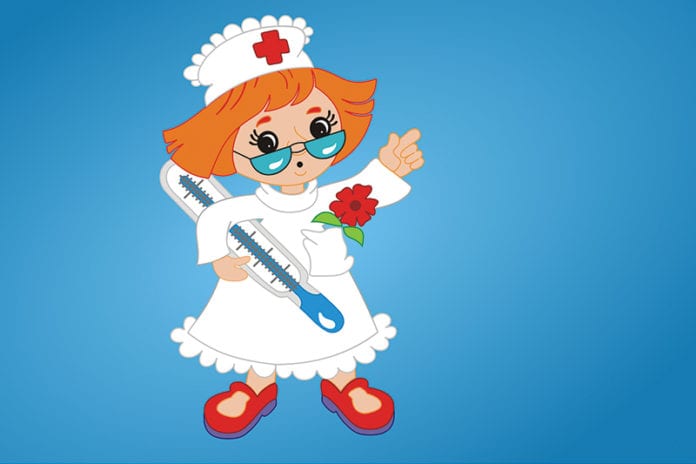It was only recently that the phrase “just a nurse” was really taken to ask—and on a national level. But as author, nurse and regular Scrubs magazine contributor Theresa Brown points out, “just a nurse” has long been a cringe-worthy expression among those well aware of a nurse’s worth.
Below, in an article published by Slate, Brown dissects and reshapes the phrase that finally sparked a true, nurse-led movement:
The phrase “just a nurse” has a long history in nursing and grates on most of us. But the examples Kelley Johnson gave in her monologue highlight a true difference between doctors and nurses: Doctors prescribe and diagnose, and we don’t. That means that in many people’s minds, nurses’ work is somehow always subsumed into doctors’ work.
Of course, that would suggest that nurses serve under doctors, not beside them as partners in care. That would likewise suggest that doctors and nurses do not operate as key, complementary roles, which they do.
Needless to say, the article aims to address these misconceptions, starting with a breakdown of just what it is nurses do—something many non-nurses simply don’t understand:
First off, nurses are present. Doctors aren’t the ones calming a frightened patient at 3 a.m. or holding a basin while a patient vomits at 3 p.m. Doctors usually aren’t the ones sounding the alarm when a patient starts going downhill fast.
It’s almost always nurses medicating and comforting patients who are dying. It’s almost always nurses soothing distraught family members.
So nurses are, for lack of better words, on the ground—all the time. What else?
Second, nurses and doctors actually have shared responsibility for patients. Doctors write the orders, but nurses are the ones who actually carry those orders out, and that process carries its own ethical burdens.
The author goes on to describe a time in which she sat with a patient undergoing chemotherapy, injecting a highly toxic drug into a major vein (via IV), over the course of 30 minutes.
The task required intense concentration, observation and a keen awareness that she was the “agent of suffering,” should the patient suffer as a result of the effects.
Finally, part of any nurse’s job is to keep doctors accountable. We learn in school that we are the “final check” on all physician orders; that’s an obligation we take very seriously.
What’s more, many lifesaving catches are often met with a defensive response from physicians who have been notified of an error, as opposed to the gratitude or recognition that an astute safety net deserves.
Still, nurses are not deterred—just tired of being minimized:
This is all in a day’s work, and in general nurses are not looking for undue recognition—they just want credit where credit is due. There’s a kind of humility built into the nursing profession, but our essentialness is quite real, and needs to be recognized if we really want our health care system to be the best it can be.
Pointing to a list some of the more well-known pain points, from nurse staffing to hostile or unsafe work environments, the author notes how these are perceived as symptoms of deeper issues embedded within the healthcare system—not as real, essential issues in and of themselves.
Her own opinion?
That needs to change. Whether you call nurses the backbone of our health care system or the spokes in the hospital wheel, strength only comes from strength, and our policy makers—and our cultural commentators—need to understand that and take nurses’ professional needs seriously.
And her conclusion?
One day, I would love to see an inversion of Kelley Johnson’s story: A patient asks a physician a question, and the doctor responds, “Oh, I’m just a doctor. You’ll want to ask the person who takes care of you 24/7—your nurse.”
Want to check out the full article? We highly recommend that you do! Find it here, then be sure to share your own thoughts, concerns or words of encouragement for your fellow nurses in the comments section below.
This article was republished with permission from SCRUBS Magazine.



This is soooooo true, recently had an NP order dilaudid 1mg Q2 hrs on a patient. Discussed it with her that with a patient load of 6 this is really outrageous and time consuming, please order a PCA. Her reply was, nurses just want the easy way out, just give the patient the medicine. So MD and NP don’t realize the course of a shift and we are the ones who hold the ship together, plus catch the downward spiral but never get the recognition from the patients or the physicians.